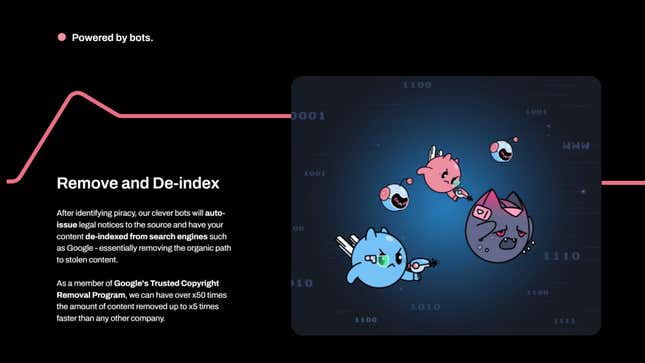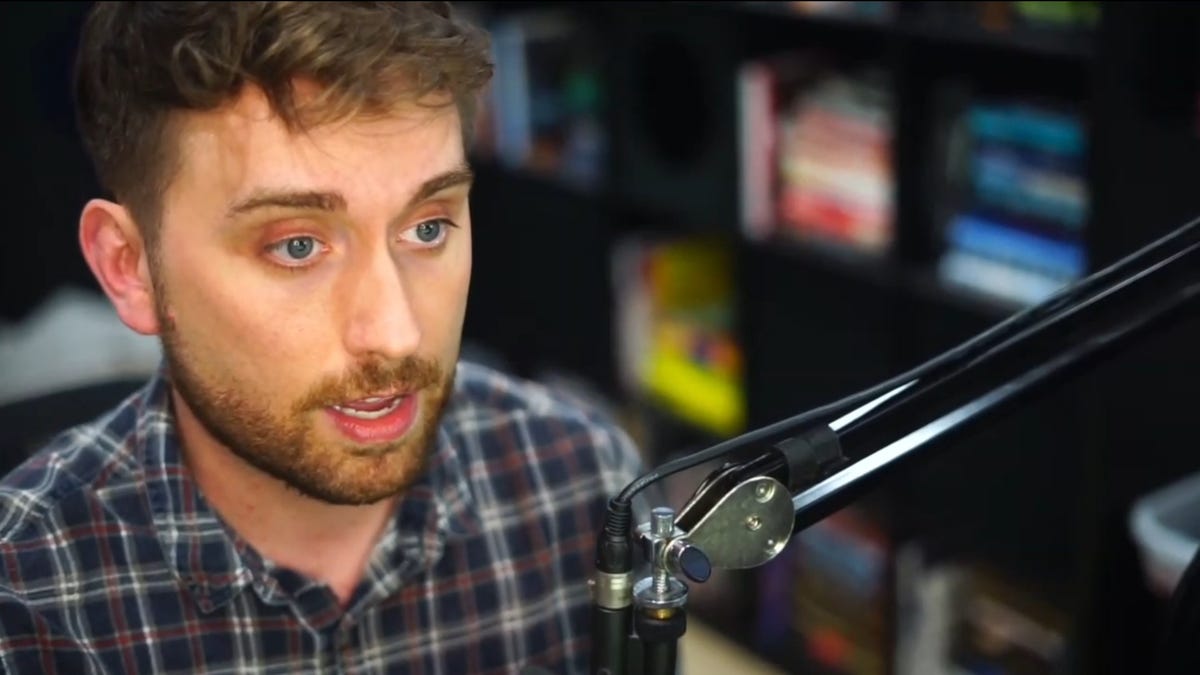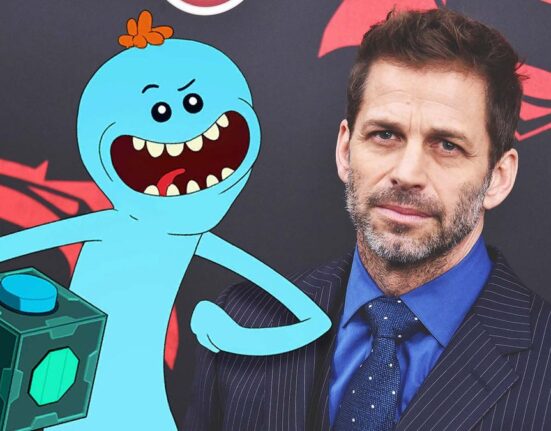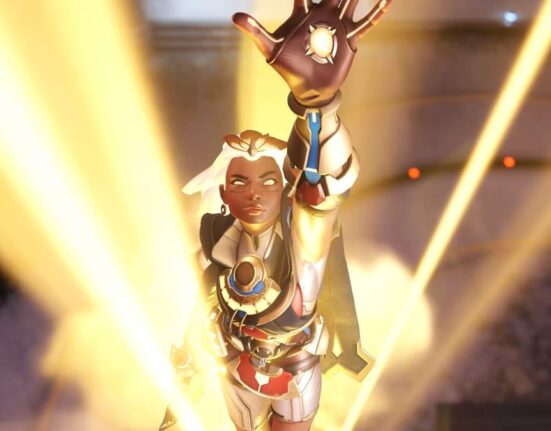Brandon “Atrioc” Ewing—the Twitch streamer who in January accidentally revealed he was viewing explicit deepfake content featuring women streamers he’s friends with IRL, setting off a massive controversy—recently returned to the platform to update his fans.
Read More: The Aftermath of Twitch’s Deepfake Porn Scandal
During his March 14 stream, which was mired in technical issues due to internet problems, Ewing claimed that he has been working “pretty much every day” on helping combat deepfake porn content since his rather “really terrible” apology video, in which his wife cried in the background and his chat overlay steadily scrolled through viewer comments on-screen.
Atrioc vows to fight deepfakes
Ewing claimed he’s been working with “reporters, technologists, researchers, women affected” in the month and a half since his last stream. “A week after the event, the first thing I did was wire Morrison Rothman [an LA-based law firm] about $60,000 to cover any woman on Twitch who wanted to use their legal services for DMCA takedowns or reputation management,” he claimed, saying that one of the streamers depicted in the deepfake content he was viewing, QTCinderella, had recommended the firm to all the women streamers affected by Ewing’s deepfake incident.
Morrison Rothman founding partner Ryan Morrison, known as the “video game attorney” on social media, confirmed this to Kotaku via Twitter DM. “Atrioc sent a $60k retainer to be used exclusively for women affected by deepfakes and similar issues,” he wrote, “[and that amount] goes a long way with our rates for such services.”
Read More: Twitch Finally Addresses Porn Deepfake Scandal Over A Month Later
During yesterday’s new stream, which periodically stopped and restarted because of tech issues, Ewing also claimed that he was contacted by Genevieve Oh, whom he described as “a leading researcher in the fight against deepfakes.” Ewing said Oh sent him a 25-page document that she had compiled about the technology behind deepfakes and how the rapid leaps that tech has taken in recent years is contributing to its prevalence today.
Kotaku also received such a document from Oh when the controversy first began, and can confirm that it contains the information Ewing discusses in his stream. It explains how just a few years ago, the technology required to create deepfake content required a lot more computing power than it does today. Now there are even phone apps that can make passable deepfakes, hence why the content is proliferating on social media and the internet in general.
Ewing thanked Oh for getting him up to speed faster than he could have on his own, but said his initial reaction to the prevalence of this content and the difficulty inherent in removing it was depression. However, he said he then shifted his focus, narrowing his scope so that he could hone in on things he could control. “Using Genevieve’s doc and my own research, I tried to find the ‘bright spots’ in the fight against this type of content,” he said. And according to him, there’s one group of people who are “way better” at fighting against deepfake content and getting it taken down.
Taking down unwanted content with ‘AI’
That group is OnlyFans creators. “They were way ahead of the curve on the best practices on fighting this kind of thing, and it’s because they have a direct financial incentive,” Ewing said. So, he began looking into what OnlyFans creators use to take down illegally reproduced content. He eventually ended up getting in contact with an employee at Ceartas, an “AI-powered” DMCA takedown company based in Ireland that offers content creators a selection of service plans costing from $99 to $549 a month.
Ceartas’ site claims it has a 98 percent success rate in helping content creators “recover lost revenue by automatically finding, de-indexing, and eliminating illegally hosted platforms and bad actors that steal and leak your copyrighted content.” Ceartas, said Ewing, is “basically a technology that uses bots and AI to fight bots and AI” that “automatically flags improper use of your likeness, dangerous keywords, and fills out and sends DMCA notices” for its subscribers. OnlyFans has designated Ceartas an official OnlyFans safety partner, as noted in the February 2023 OnlyFans transparency report.
Ewing said that he wanted other content creators in need of DMCA takedown assistance to work with him and Ceartas to see how effective the service would be, but that he initially couldn’t get any other streamers to work with him—understandably.

But, Ewing claims, one of the Twitch creators portrayed in the deepfake content he was viewing on his infamous January stream, Maya Higa, allegedly responded to his apology and request to work together. Ewing said he and Higa then tested Ceartas, and said they found it to be far more effective than the traditional, manual method of paying a lawyer to submit DMCA takedown requests.
Higa, who Ewing says used the money he wired to Morrison Rothman to issue takedowns, tallied only 51 successful content takedowns during the month of February. The Ceartas test, which Ewing said “takes a while to set up,” apparently resulted in 512 confirmed takedowns and over a thousand DMCA requests related to Higa’s content and her likeness.
Read More: Twitch Streamer Pokimane Wants Tougher Laws on Revenge Porn
Ewing showed the results to QTCinderella, who agreed to test Ceartas for herself, and he claimed her testing went even better. From there, Ewing said popular streamers Pokimane and Amouranth agreed to get involved.
Kotaku reached out to reps for Maya Higa, QTCinderella, Pokimane, and Amouranth to confirm the details Ewing shared.
Twitch streamer Sweet Anita, who was also affected by the deepfake content, confirmed to Kotaku via Discord DMs that she was not contacted by Ewing or anyone from Ceartas, but she did express interest in the service after Kotaku sent her a link to the site.
Kotaku reached out to Ceartas and Ewing but did not receive a response by the time of publication.







Leave feedback about this